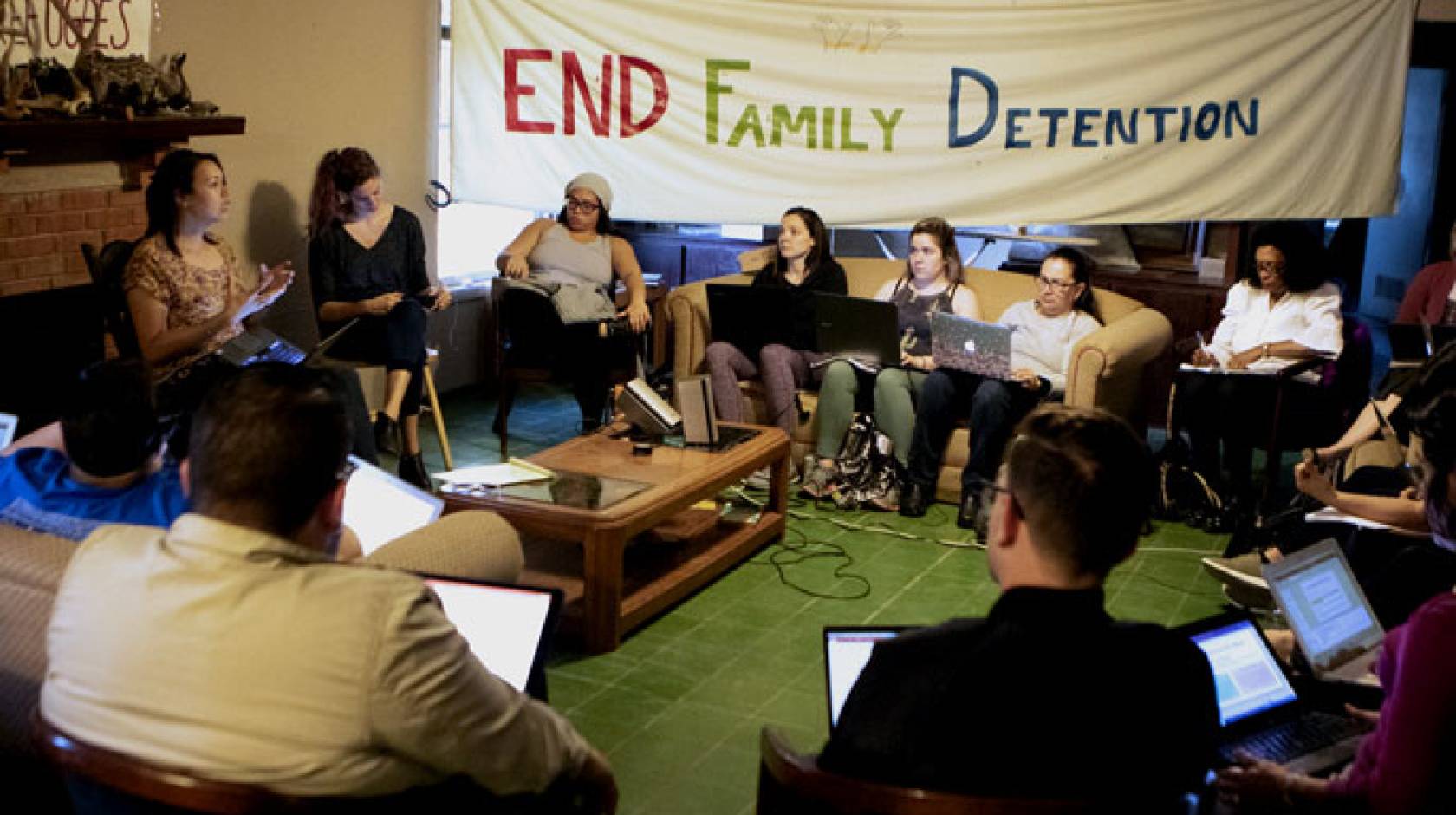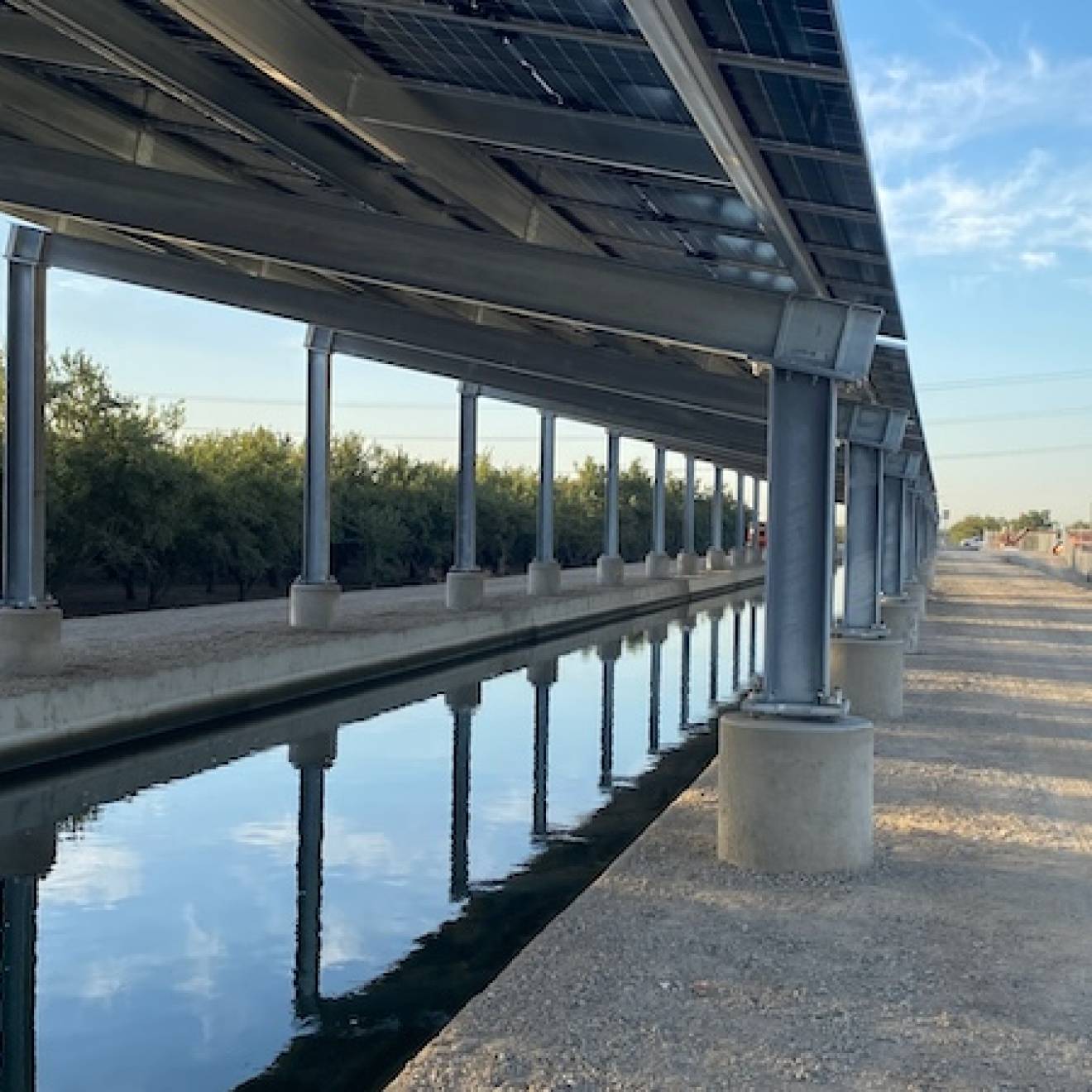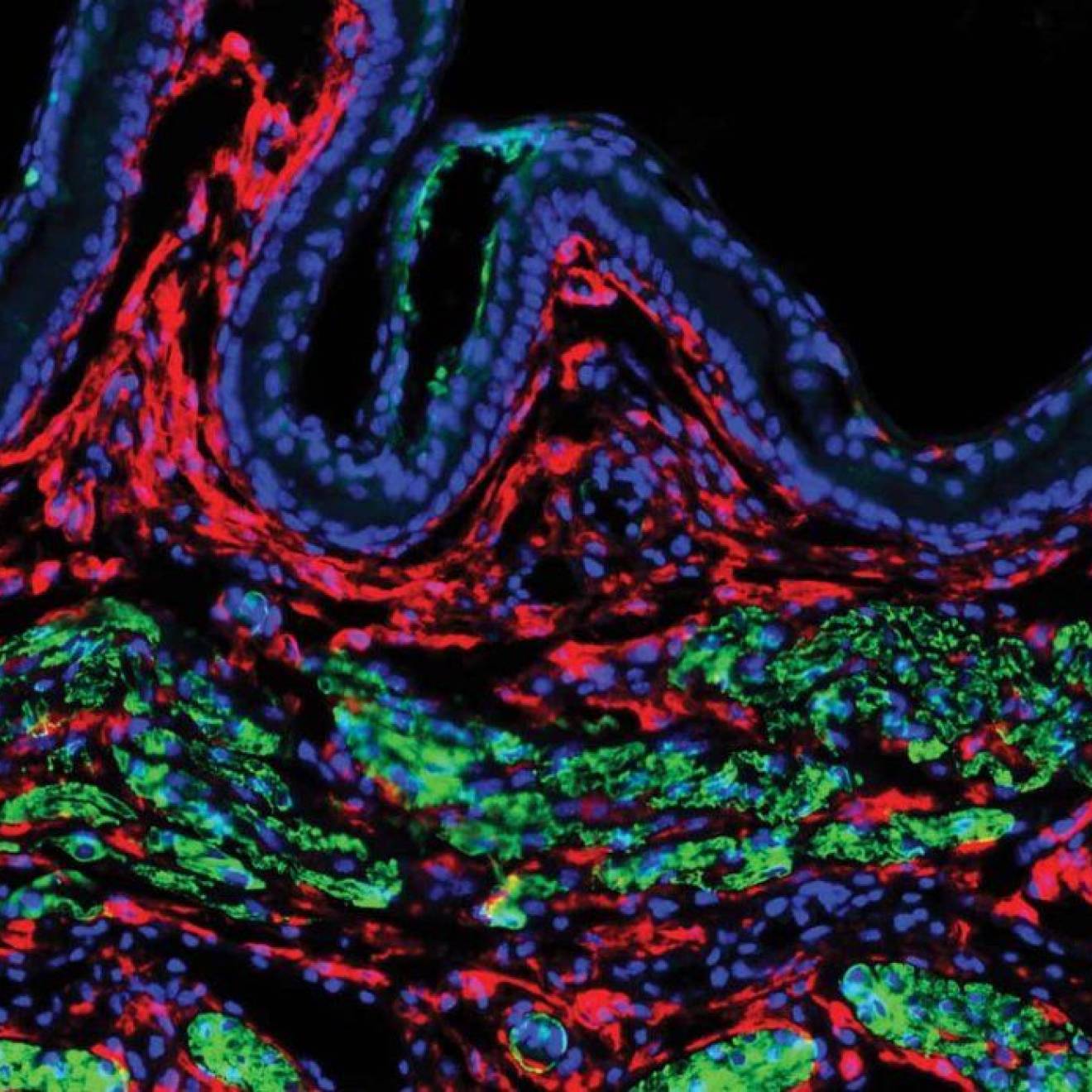UCLA Luskin School of Public Affairs, UCLA

Angela “Angie” Garcia was 1,500 miles from home, and she had just finished a 12-hour shift as a volunteer providing counsel to refugee mothers and children at the largest immigrant detention center in the United States.
Seated in a circle for a nightly recap, she and other volunteers seemed frayed but composed — almost stoic. Garcia was there as part of a team of four students and two faculty from the social welfare department in the UCLA Luskin School of Public Affairs. They and volunteers from other universities and legal services had spent the day listening to gut-wrenching stories told by women and children being held in the South Texas Family Residential Center.
Garcia thought of her own parents’ migration from Mexico. And when it was her turn to share, tears began to flow. Garcia’s expression of heartbreak granted others permission to do the same, and soon emotions flowed freely.
“This trip has changed the way I see my own family’s journey,” Garcia said later. “I texted my parents at the end of the first day, this long message … ‘Thank you. Thank you.’”
Dilley, Texas, may not be ground zero for the nation’s polarizing conflict over immigration, but it’s close. Earlier this year, it became a real-life, transformative classroom for Garcia and three other master’s students at UCLA Luskin: Fatima Gonzalez, Marianna Hernandez and Anthony Gomez. They and faculty volunteers Ayako Miyashita Ochoa and Sergio Serna cited their families’ immigrant backgrounds as motivation for volunteering.
The detention center is only 84 miles from the Mexico border. It was built during the Obama administration to house migrant families seeking asylum in the United States. But it wasn’t until the Trump administration began separating immigrant children from their mothers that the center gained notoriety.
“When I first started with the project, we would struggle to have five, 10 volunteers,” said Cindy Woods, one of two staff attorneys working with the Dilley Pro Bono Project. “After family separation, there was a lot more attention to this issue. So now we are maxed out on volunteers.”

Credit: George Foulsham/UCLA
The February trip to Dilley was proposed to Serna in the summer of 2018. Soon after, Laura Abrams, chair of social welfare in UCLA Luskin, connected with the dean of the School of Social Work at the University of Washington, Eddie Uehara. At UW, the School of Law also became involved, and discussions produced a partnership to send representatives from both universities to do a week of volunteer service.
The Dilley Pro Bono Project provides legal services at no charge to detained mothers and children — at any given time there might be 2,400 in custody — who are fleeing extreme violence in Central America and elsewhere, and are seeking asylum in the United States.
The detainees interviewed by the UCLA volunteers were mothers with children under 18 who had recently crossed the border. The majority were from Honduras, Guatemala and El Salvador. More than 99.5 percent of detainees who go through what are known as “credible fear interviews” and an appeals process are eventually released from detention to await further action on their plea for asylum, according to project staff.
Volunteers provide legal counsel for families seeking asylum. Katy Murdza, advocacy coordinator, said volunteers are vital to the project’s success because only 12 permanent employees are on staff.
“Families have a right to and need advice on how to go through their credible fear interview,” Murdza explained. “Getting a positive on their interview is the key to being released from this detention center. Volunteers, while they might not have experience, and it’s a lot to learn very quickly, can make a huge difference.”
Learning what qualifies as credible fear is part of the educational process for volunteers. The bridge from law to social work is a short one for Serna, a field education faculty member at UCLA Luskin.
“This is where the legal expertise can easily be paired with the social work expertise. It’s more than just legal issues being identified in this situation,” he said. “Families aren’t just dealing with needing representation to get released from detention. They’re dealing with emotional issues. They’re dealing with trauma. I think, at that particular nexus, social work takes over.”
Photographers and journalists are not allowed inside the facility, where just 15 steps separate freedom from confinement, according to the volunteers.
Serna and Gonzalez said their first impression was seeing “color everywhere” — a sea of fluorescent pink, red, brown, blue, purple and neon green sweatshirts and jackets supplied at the facility because the clothes were inexpensive and the mothers and children are institutionalized. “You see that and you know: These are not people that are free,” said Miyashita Ochoa, an adjunct faculty member with UCLA Luskin who has also taught in the UCLA School of Law.
Then came the sounds of children running, crying, playing — all speaking Spanish.
The interviews with detainees sometimes took place over a period of days, four or five hours at a time, in private rooms, usually with the children present. At first, Hernandez was surprised that the detainees wanted their children in the room during interviews.
“And then I had to remind myself that these kids lived everything that was coming out of the mothers’ mouths,” she said. “It wasn’t news to them. People entered their homes with guns and threatened them too.”
The volunteers struggled to reconcile themselves to a process in which the definition of success — getting a positive in the credible fear interview — seemed to require retraumatizing women and children as they recounted the dangers that led them to flee their home countries.
The evidence in almost every case proved that the immigrants weren’t seeking handouts or simply a better life, according to the volunteers. Rather, they sought to give themselves and their children a chance to escape violence — to stay alive.
The stories of hardship were difficult to hear, but the UCLA team members said they were uplifted by the courage and determination of the mothers they met. All said the experience changed their lives.
“I feel so much more invested in this issue, and so much more driven to do something about this,” Gomez said.
Miyashita Ochoa’s takeaway was cautiously optimistic.
“The stakes are so incredibly high,” she said. “My mission from this point on is to focus on resiliency, to not give up. My mission is to take this experience and make it feed my fire.”
This story was reported from Dilley, Texas, by George Foulsham, who also took the photographs and conducted the interviews for the video, working with videographer Michael Troxell. Some of the descriptions in the story were provided after the trip by Ayako Miyashita Ochoa and Sergio Serna of the UCLA Luskin faculty. See more pictures and the full story on the UCLA Luskin School of Public Affairs website.

